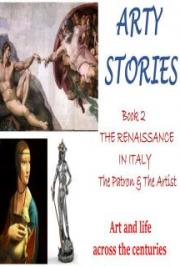There are
advantages in being a gentleman, which can not be denied. One
is that it
commands credit in the King’s presence as well as at the
tailor’s.
It is interesting
to compare both these attitudes with that of
”Athos,” the
Count de la Fere, toward the King. He was lacking in
the irresistibly fierce
insolence of Bussy and in the abasement of
D’Artagnan; it
was melancholy, patient, persistent and terrible in its
restrained
calmness. How narrowly he just escaped true greatness. I
would no more
cast reproaches upon that noble gentleman than I would
upon my
grandmother; but he–was–a–trifle–serous, wasn’t he? He was
brave, prompt,
resourceful, splendid, and, at need, gingerish as the
best colt in the
paddock. It is the deuce’s own pity for a man to be
born to too much
seriousness. Do you know–and as I love my country, I
mean it in honest
respect–that I sometimes think that the gentleness
and melancholy of
Athos somehow suggests a bit of distrust. One is
almost
terrified at times lest he may begin the Hamlet controversies.
You feel that if
he committed a murder by mistake you are not absolutely
sure he wouldn’t
take a turn with Remorse. Not so Bussy; he would throw
the mistake in
with good will and not create worry about it. Hang it
all, if the
necessary business of murder is to halt upon the shuffling
accident of
mistake, we may as well sell out the hero business and rent
the shop. It
would be down to the level of Hamlet in no time. Unless, of
course, the hero
took the view of it that Nero adopted. It is improbable
that Nero
inherited the gift of natural remorse; but he cultivated one
and seemed to do
well with it. He used to reflect upon his mother and
his wife, both of
whom he had affectionately murdered, and justified
himself by
declaring that a great artist, who was also the Roman
42
Emperor, would be
lacking in breadth of emotional experience and
retrospective
wisdom, unless he knew the melancholy of a two-pronged
family remorse.
And from Nero’s standpoint it was one of the best
thoughts that he
ever formulated into language.
To return to
Bussy and D’Artagnan. In courage they were Hector and
Achilles. You
remember the champagne picnic before the bastion St.
Gervais at the
siege of St. Rochelle? What light-hearted gayety amid the
flying
missiles of the arquebusiers! Yet, do not forget that–ignoring
the lacquey–there
were four of them, and that his Eminence, the
Cardinal Duke,
had said the four of them were equal to a thousand men!
If you have
enough knowledge of human nature to understand the fine
game of baseball,
and have at any time scraped acquaintance with the
interesting
mathematical doctrine of progressive permutations, you will
see, when four
men equal to a thousand are under the eyes of each other,
and of the
garrison in the fort, that the whole arsenal of logarithms
would give out
before you could compute the permutative possibilities
of the courage
that would be refracted, reflected, compounded and
concentrated by
all there, each giving courage to and receiving courage
from each and all
the others. It makes my head ache to think of it. I
feel as if I
could be brave myself.
Certainly they
were that day. To the bitter end of finishing the meal;
and they
confessed the added courage by gamboling like boys amid awful
thunders of the
arquebuses, which made a rumble in their time like their
successors, the
omnibuses, still make to this day on the granite streets
of cities
populated by deaf folks.
There never was
more of a gay, lilting, impudent courage than those four
mousquetaires
displayed with such splendid coolness and spirit.
But compare it
with the fight which Bussy made, single-handed, against
the assassins
hired by Monsereau and authorized by that effeminate
fop, the Due
D’Anjou. Of course you remember it. Let me pay you the
affectionate
compliment of presuming that you have read ”La Dame de
Monsereau,” often
translated under the English title, ”Chicot, the
Jester,” that
almost incomparable novel of historical romance, by M.
Dumas. If,
through some accident or even through lack of culture, you
have failed to do
so, pray do not admit it. Conceal your blemish and
remedy the matter
at once. At least, seem to deserve respect and
confidence,
and appear to be a worthy novel-reader if actually you are
not. There is a
novel that, I assure you on my honor, is as good as
the ”Three
Guardsmen;” but–oh!–so–much–shorter; the pity of it,
too!–oh, the pity
of it! On the second reading–now, let us speak with
frank
conservatism–on the second reading of it, I give you my word, man
to man, I dreaded
to turn every page, because it brought the end nearer.
If it had been
granted to me to have one wish fulfilled that fine winter
night, I should
have said with humility: ”Beneficent Power, string it
out by nine more
volumes, presto me here a fresh box of cigars, and the
account of your
kindness, and my gratitude is closed.”
43
If the publisher
of this series did not have such absurd sensitiveness
about the value
of space and such pitifully small ideas about the
nobility of
novels, I should like to write at least twenty pages about
”Chicot.” There
are books that none of us ever put down in our lists of
great books, and
yet which we think more of and delight more in than all
the great guns.
Not one of the friends I’ve loved so long and well has
been President of
the United States, but I wouldn’t give one of them for
all the
Presidents. Just across the hall at this minute I can hear the
frightful din of
war–shells whistling and moaning, bullets s-e-o-uing,
the shrieks of
the dying and wounded–Merciful Heaven! the ”Don Juan
of Asturia” has
just blown up in Manila Bay with an awful roar–again!
Again, as I’m a
living man, just as she has blown up every day, and
several times
every day, since May 1, 1898. There are two warriors over
in the play-room,
drenched with imaginary gore, immersed in the tender
grace of
bestowing chastening death and destruction upon the Spanish
foe. Don’t I know
that they rank somewhat below Admiral Dewey as heroes?
But do you
suppose that their father would swap them for Admiral Dewey
and all the
rainbow glories that fine old Yankee sea-dog ever will
enjoy–long may he
live to enjoy them all!–do you think so? Of course
not! You know
perfectly well that his–wife–wouldn’t–let–him!
I would not wound
the susceptibilities of any reader; but speaking for
myself–”Chicot”
being beloved of my heart–if there was a mean man,
living in a mean
street, who had the last volume of ”Chicot” in
existence, I
would pour out my library’s last heart’s blood to get
it. He could have
all of Scott but ”Ivanhoe,” all of Dickens but
”Copperfield,”
all of Hugo but ”Les Miserables,” cords of Fielding,
Marryat,
Richardson, Reynolds, Eliot, Smollet, a whole ton of German
translations–by
George! he could leave me a poor old despoiled,
destitute and
ruined book-owner in things that folks buy in costly
bindings for the
sake of vanity and the deception of those who also
deceive them in
turn.
Brother, ”Chicot”
is a book you lend only to your dearest friend, and
then remind him
next day that he hasn’t sent it back.
Now, as to
Bussy’s great fight. He had gone to the house of Madame Diana
de Monsereau. I
am not au fait upon French social customs, but let us
presume his being
there was entirely proper, because that excellent lady
was glad to see
him. He was set upon by her husband, M. de Monsereau,
with fifteen
hired assassins. Outside, the Due D’Anjou and some others
of assassins were
in hiding to make sure that Monsereau killed Bussy,
and that somebody
killed Monsereau! There’s a ”situation” for you,
double-edged
treachery against–love and innocence, let us say. Bussy
is in the house
with Madame. His friend, St. Luc, is with him; also
44
his lacquey and
body-physician, the faithful Rely. Bang! the doors are
broken in, and
the assassins penetrate up the stairway. The brave Bussy
confides
Diana to St. Luc and Rely, and, hastily throwing up a barricade
of tables and
chairs near the door of the apartment, draws his sword.
Then, ye friends
of sudden death and valorous exercise, began a surfeit
of joy. Monsereau
and his assassins numbered sixteen. In less than three
moderate
paragraphs Bessy’s sword, playing like avenging lightning,
had struck
fatality to seven. Even then, with every wrist going, he
reflected,
with sublime calculation: ”I can kill five more, because I
can fight
with all my vigor ten minutes longer!” After that? Bessy could
see no
further–there spoke fate!–you feel he is to die. Once more the
leaping steel
point, the shrill death cry, the miraculous parry. The
villain,
Monsereau, draws his pistol. Bessy, who is fighting half
a dozen
swordsmen, can even see the cowardly purpose; he watches;
he–dodges–the–bullets!–by
watching the aim–
”Ye sons of
France, behold the glory!”
He thrusts, parries
and swings the sword as a falchion. Suddenly a
pistol ball snaps
the blade off six inches from the hilt. Bessy picks up
the blade and in
an instant splices–it–to–the–hilt–with–his–
handkerchief !
Oh, good sword of the good swordsman! it drinks the blood
of three more
before it–bends–and–loosens–under–the–strain! Bessy
is shot in the
thigh; Monsereau is upon him; the good Rely, lying almost
lifeless from a
bullet wound received at the outset, thrusts a rapier to
Bessy’s grasp
with a last effort. Bessy springs upon Monsereau with the
great bound of a
panther and pins–the–son–of–a–gun–to–the–floor
–with–the–rapier–and–watches–him–die!
You can feel
faint for joy at that passage for a good dozen readings, if
you are
appreciative. Poor Bessy, faint from wounds and blood-letting,
retreats
valiantly to a closet window step by step and drops out,
leaving Monsereau
spitted, like a black spider, dead on the floor. Here
hope and
expectation are drawn out in your breast like chewing gum
stretched to the last
shred of tenuation. At this point I firmly
believed that
Bessy would escape. I feel sorry for the reader who does
not. You just
naturally argue that the faithful Rely will surely reach
him and rub him
with the balsam. That balsam of Dumas! The same that
D’Artagnan’s
mother gave him when he rode away on the yellow horse,
and which cured
so many heroes hurt to the last gasp. That miraculous
balsam, which
would make doctors and surgeons sing small today if they
had not
suppressed it from the materia medica. May be they can silence
their consciences
by the reflection that they suppressed it to enhance
the value and
necessity of their own personal services. But let them
look at the death
rate and shudder. I had confidence in Rely and the
balsam, but he
could not get there in time. Then, it was forgone that
Bessy must die.
Like Mercutio, he was too brilliant to live. Depend upon
it, these wizards
of story tellers know when the knell of fate rings
much sooner than
we halting readers do.
45
Bessy drops from
the closet window upon an iron fence that surrounded
the park and was
impaled upon the dreadful pickets! Even then for
another moment
you can cherish a hope that he may escape after all.
Suspended there
and growing weaker, he hears footsteps approaching. Is
it a rescuing
friend? He calls out–and a dagger stroke from the hand of
D’Anjou, his
Judas master, finds his heart. That’s the way Bessy died.
No man is proof
against the dagger stroke of treachery. Bessy was
powerful and the
due jealous.
Diana has been
carried off safely by the trustworthy St. Luc. She must
have died of
grief if she had not been kept alive to be the instrument
of retributive
justice. (In the sequel you will find that this Queen of
Hearts descended
upon the ignoble due at the proper time like a thousand
of brick and took
the last trick of justice.)
The extraordinary
description of Bussy’s fight is beyond everything. You
gallop along as
if in a whirlwind, and it is only in cooler moments that
you discover he
killed about twelve rascals with his own good arm. It
seems impossible;
the scientific, careful readers have been known to
declare it
impossible and sneer at it with laughter. I trust every
novel reader
respects scientific folks as he should; but science is not
everything. Our
scientific friends have contended that the whale did not
engulf Jonah;
that the sun did not pause over the vale of Askelon; that
Baron
Munchausen’s horse did not hang to the steeple by his bridle;
that the
beanstalk could not have supported a stout lad like Jack; that
General Monk was
not sent to Holland in a cage; that Remus and Romulus
had not a devoted
lady wolf for a step-mother; in fact, that loads of
things, of which
the most undeniable proof exists in plain print all
over the world,
never were done or never happened. Bessy was killed,
Rely was killed
later, Diana died in performing her destiny, St. Luc was
killed. Nobody
left to make affidavits, except M. Dumas; in his lifetime
nobody questioned
it; he is now dead and unable to depose; whereupon the
scientists sniff scornfully and
deny. I hope I shall always continue to
respect science
in its true offices, but, brethren, are there not times
when–science–makes–you–just–a–little–tired?
Heroes!
D’Artagnan or Bessy? Choose, good friends, freely; as freely let
me have my Bessy.
VIII
HEROINES
A SUBJECT ALMOST
WITHOUT AN OBJECT–WHY THERE ARE
FEW HEROINES FOR
MEN.
Notwithstanding
the sub ject, there are almost no heroines in novels.
There are
impossibly good women, absurdly patient and brave women, but
46
few heroines as
the convention of worldly thinking demands heroines.
There is an
endless train of what Thackeray so aptly described as ”pale,
pious, and
pulmonary ladies” who snivel and snu







